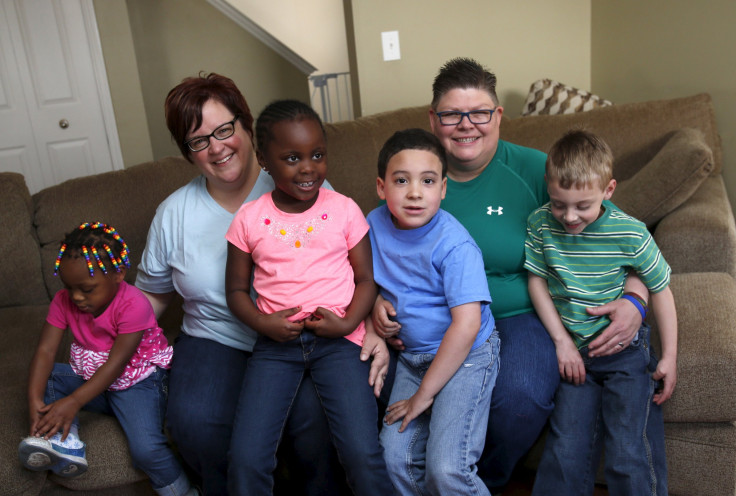
Inside the walls of the Supreme Court of the United States (SCOTUS), Justices will hear oral arguments today to decide if same-sex marriages must be recognized in every state. Plaintiffs for the case are same-sex couples who’ve suffered legal injuries as a result of their marriages not being recognized. They include DeBoer and Jayne Rowse, a lesbian couple from Michigan whose children can only be adopted by one parent, James Obergefell, a gay man from Ohio who was not listed on his late spouse’s death certificate, and other similar cases where the red tape of state governments has disrupted the lives of LGBT couples whose marriages are not fully recognized where they live.
While the plaintiffs represented in front of the Supreme Court today are all citizens, the implications of the court’s ruling will affect non-citizens as well. A ruling against same-sex marriage rights would maintain a status quo, in which binational LGBT couples face additional hurdles in an already complex immigration system. A ruling in favor of the Rowses and Obergefell would widen the path to citizenship for the more than 250,000 LGBT undocumented immigrants living in the U.S. All immigrants can more easily attain a green card and U.S. citizenship when the marry an American. After the Defense of Marriage Act (DOMA) was struck down in 2013, that that has included LGBT couples who are married in the 37 states where marriage is legal. For undocumented immigrants in love with Americans, it’s been a relief, allowing them to come out of the shadows and integrate in their new nation.
Felipe Sousa-Rodriguez: I can never stop being an immigrant, and I can never not be gay. #UNITE4MARRIAGE #SCOTUS pic.twitter.com/HVASd76hdA
— The Task Force (@TheTaskForce) April 28, 2015“I lived in the double closet. I was in the closet because I was attracted to men, and I was also in the closet because I was undocumented,” Felipe Sousa-Rodriguez, deputy managing director of United We Dream told Fusion. “I’m going to challenge the immigrant community to show up to support the LGBT struggle and I’m going to challenge the LGBT community for the immigrant struggle,” Sousa-Rodriguez said of a speech he planned to deliver in outside of the Supreme Court on Tuesday, where both pro-equality and anti-gay marriage activists gathered.
Felipe is a Brazilian immigrant and former Dreamer. His spouse Isabel, a Colombian and former Dreamer, became a citizen first, facilitating Felipe’s own path to citizenship. Together, they’ve jumped the hurdles of immigration status and marriage discrimination, running through the fluctuating labyrinth of U.S. marriage laws that led them to be married in both Massachusetts and Florida. They’ve shown that same-sex marriage is possible for LGBT couples. Yet Felipe and Isabel are activists, with passion and drive to slice through the red tape, and the willingness to live in pro-LGBT states.
For immigrants marrying into families based in an anti-LGBT local, the SCOTUS decision will make or break thousands of current and future binational relationships. Can all Americans marry who they choose and also live where they choose? We’ll have to wait to find out. Oral arguments heard by SCOTUS will be considered by the Justices, and weighed along with a record number of amicus briefs. While it will take weeks for the Court to issue a ruling, observers use oral argument and questions from the Justices to gauge the opinion of the court.
© 2025 Latin Times. All rights reserved. Do not reproduce without permission.




